A lot of impressive research is conducted every day in Internal Medicine. And that work occurs alongside efforts to train and build the careers of the next generation of researchers. One of the most accomplished at both aspects is Anil Chauhan, MTech, PhD. Since joining the University of Iowa in 2010, Chauhan, a professor in the Division of Hematology, Oncology, and Blood and Marrow Transplantation, has been leading his lab—and his trainees—toward innovative discovery, group success, and individual growth.
Chauhan has authored more than 50 publications in peer-reviewed journals including 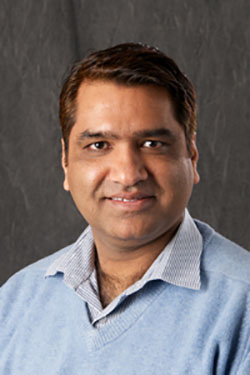 Circulation, Blood, Blood Advances, and ATVB. His lab has been supported by funds from the American Society of Hematology (ASH), the American Heart Association (AHA), and the National Institutes of Health (NIH). Last year, Chauhan received an R35 investigator Award from the NIH’s National Heart, Lung, and Blood Institute (possibly the only R35 at UI) and the AHA’s prestigious Established Investigator Award.
Circulation, Blood, Blood Advances, and ATVB. His lab has been supported by funds from the American Society of Hematology (ASH), the American Heart Association (AHA), and the National Institutes of Health (NIH). Last year, Chauhan received an R35 investigator Award from the NIH’s National Heart, Lung, and Blood Institute (possibly the only R35 at UI) and the AHA’s prestigious Established Investigator Award.
The lab’s central research focuses on the pathophysiology of vascular disorders. Over the past several years, Chauhan has demonstrated the mechanistic role of the extracellular matrix protein fibronectin containing alternatively spliced extra domain A (Fn-EDA) in various pathological conditions including arterial thrombosis, stroke, and atherosclerosis. The lab’s overarching goal is to find new therapeutic targets to help people avoid acute cardiac events and stroke. The importance of this work cannot be underscored enough given the impact that cardiovascular diseases and stroke have both on people’s lives and on health care costs each year.
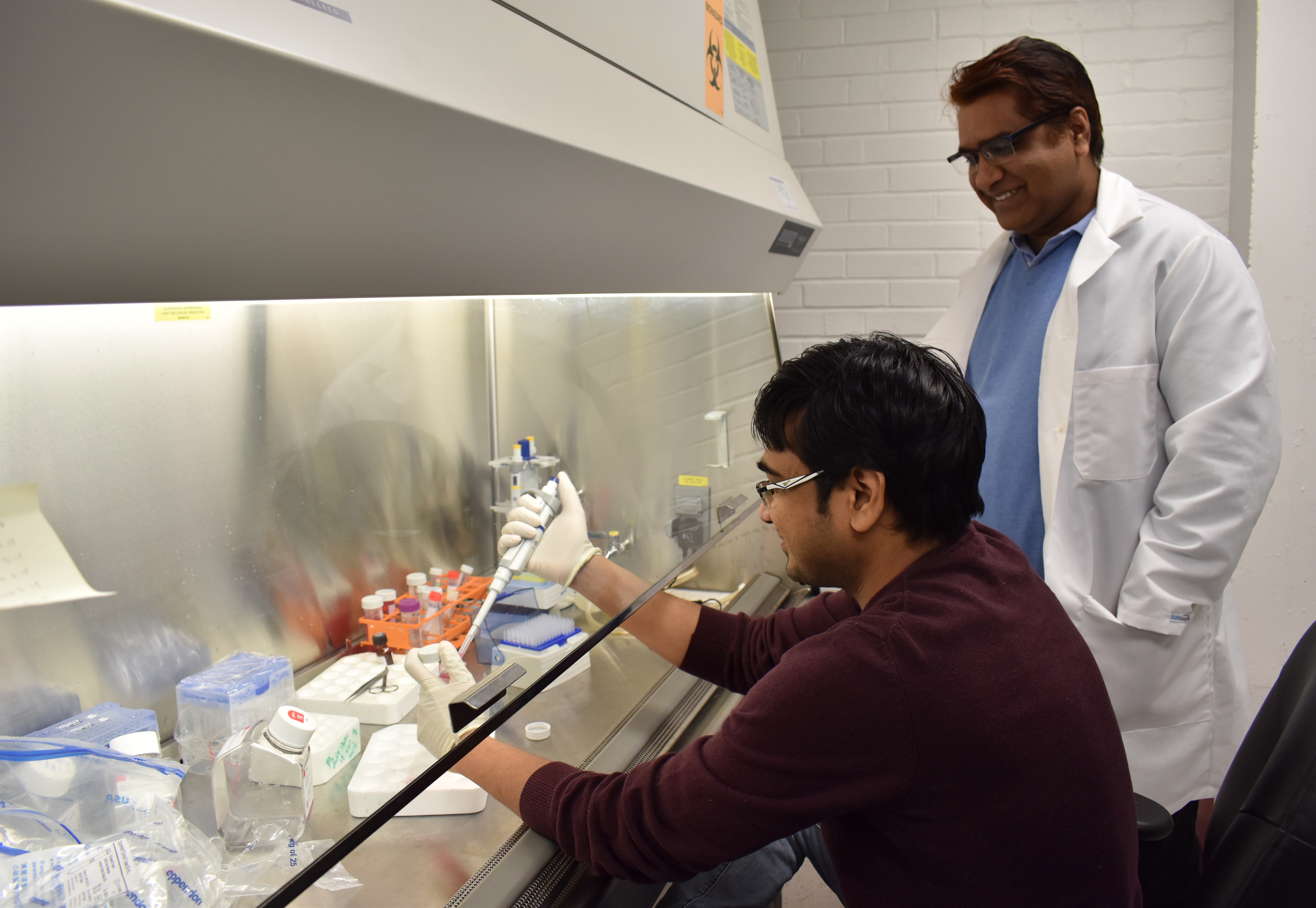
This importance no doubt plays a role in Chauhan’s proficiency in obtaining extramural funding. But he does not claim all the credit for himself nor would it explain how all the work these grants fund is advanced. When an R01 from the NIH’s National Institute for Neurological Disorders and Stroke was approved on its first application, Chauhan pointed to the members of his lab for their contribution. “It is the hard work, dedication, and commitment of our whole team who have demonstrated how to go the extra mile.” He also thanked the families of his lab’s team members for their support.
That team consists of Chauhan, postdoctoral research fellows Drs. Nirav Dhanesha and Prakash Doddapattar, postdoctoral research scholars Drs. Manasa Nayak and Manish Jain, and two new recent postdoctoral recruits Drs. Amit Tripathi and Madan Kumar Ghatge. Many of them were willing to discuss what they see as the secret to their lab’s productivity and to their successful working relationship.
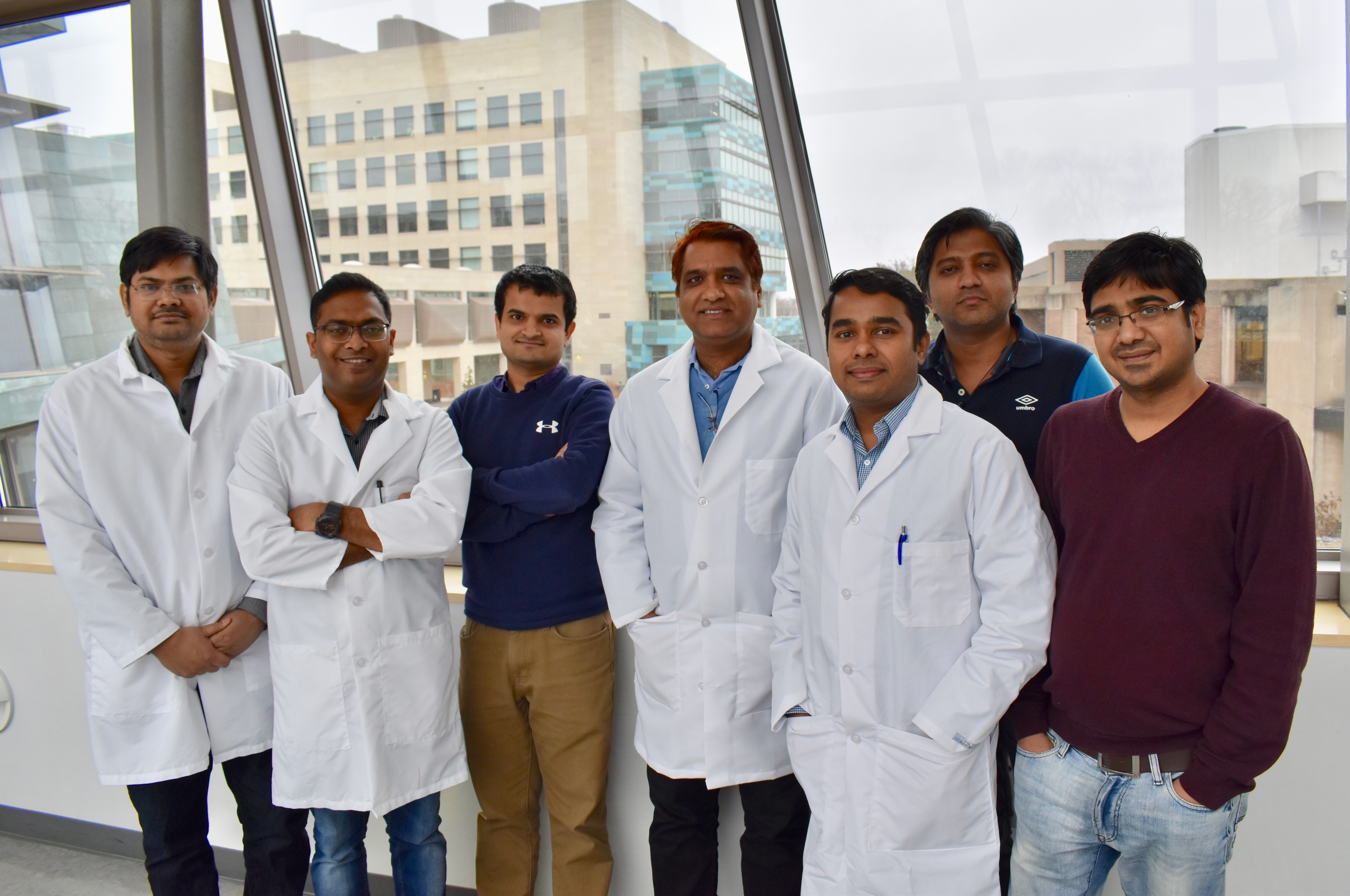
A normal week in their lab is made up of five to seven nine-hour work days a week. As a result, the lab members have spent hundreds of hours together, collaborating, bouncing ideas off each other, refining their questions and their techniques. “In the lab, there is a sense of belonging and trust. Everyone is viewed as unique,” Doddapattar said. “In forming a team, it is important to take account of the differences.”
Doddapattar specializes in atherosclerosis studies. Dhanesha and Tripathi focus on the stroke studies. Nayak and Ghatge focus on thrombosis, using state-of-the-art “intravital microscopy.” Jain studies vascular remodeling and neointimal hyperplasia using mouse models. In meetings both formal and informal they constantly discuss their work with each other.

“We take positive criticism,” said Dhanesha, a member of the lab since 2014. “We have a small box among the group, so when something is not right, we just put it there. People don’t take it in the wrong way.” He also cites the supportive and collaborative environment among lab members. “We as a group believe in the philosophy that success is the result of perfection, hard work, learning from failure, loyalty, and persistence. But the two most important things are happiness and opportunity.”
“It’s not about putting one person ahead; it’s about taking everybody in the boat,” Doddapattar said. “Each one is doing completely different projects and using different techniques, but somehow along the line, everybody thinks everybody should get some piece of the cake. Whoever comes to our group, we seriously think that everyone should get success.”
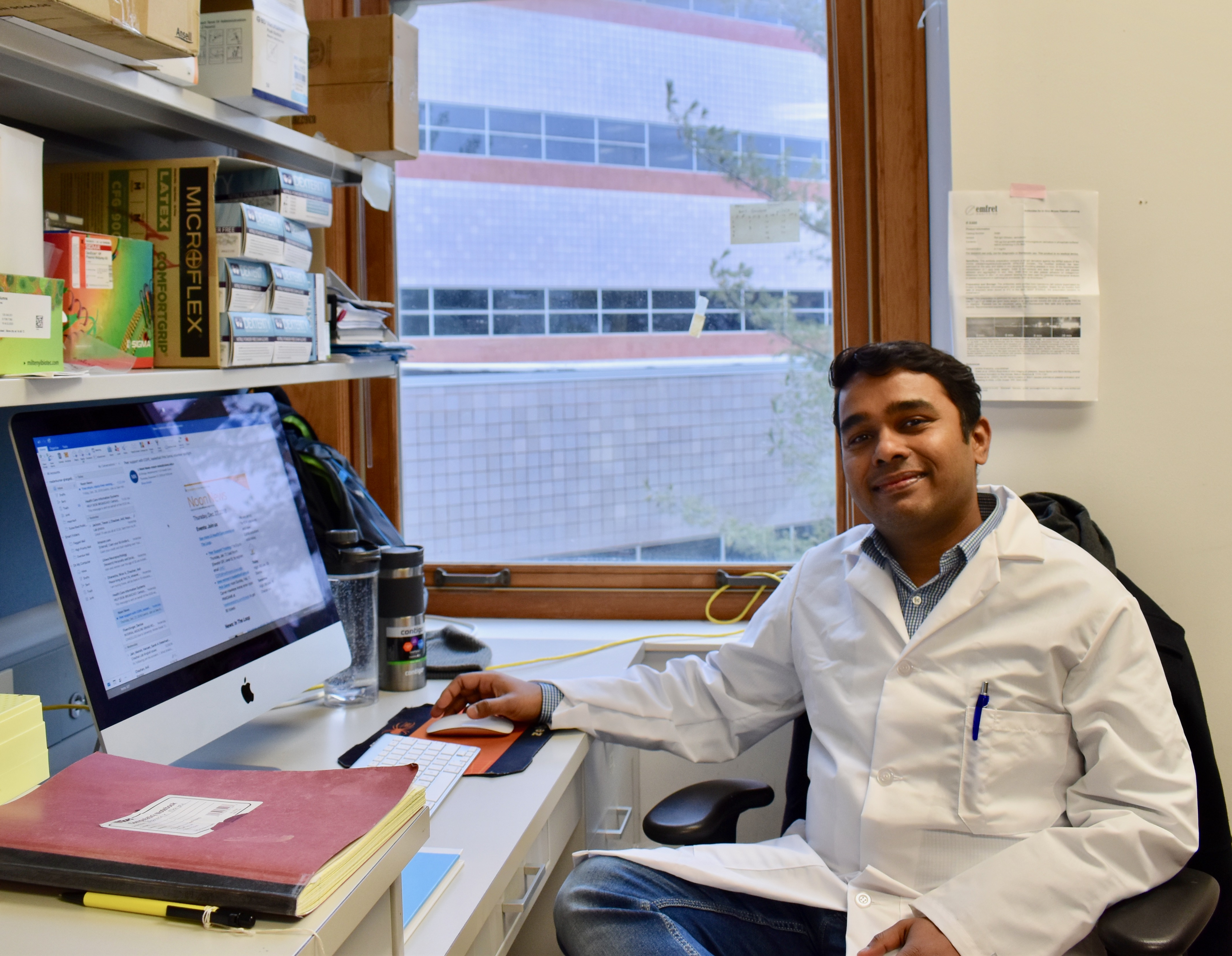
For his part, Chauhan ranks his mentorship of the researchers as important as the work the lab produces. “The idea is to train them well, so that they can become independent. But also treat them well, so they want to stay. They are your assets and not liabilities.”
Chauhan’s guidance has shown results. Dhanesha, Doddapatar, and Nayak have each received AHA postdoctoral fellowships over the last couple years. Recently, Dhanesha also received an ASH fellowship. Almost all of the lab members have won abstract achievement awards at national and regional conferences. Successes like that, Doddapatar said, “increases morale.”

Chauhan said, “We as a group quickly learn from our past mistakes, rapidly adapt to the newer technologies, motivate each other in achieving the individual career goals, and, most importantly, we work as a team.” Chauhan added that it is important to allow different personalities room to work together to achieve goals.
“He wants beyond what we can think and what we can do,” Dhanesha said. “When we go to him to discuss the data, he says, ‘This is good, but you can still do better.’ I never imagined in all these years that I’d be doing so many techniques. But now I am doing them because of his motivation. If he hadn’t asked, I would have never done it. It’s as simple as that.”
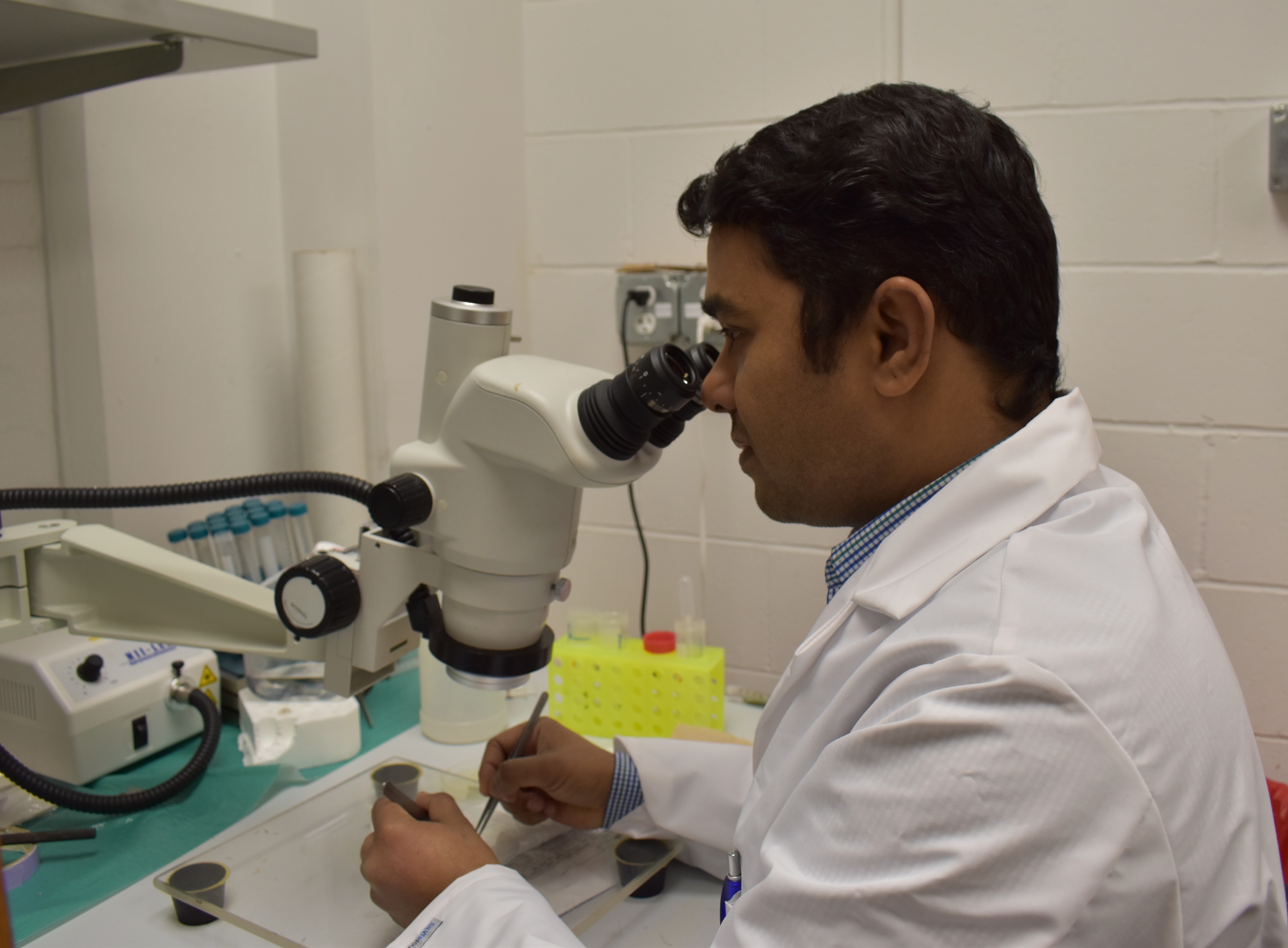
Congratulations Professor Chauhan!!! You have a special ability to make things happen. Wonderful feedback by your students means a real success. I am proud of your achievements. You are always willing to help and provide unique mentor ship. Great going.
Congratulations Dr. Anil and team.
Congratulations Anil, that’s a deserving article for the special PI and mentor!!
Congratulations Professor Chauhan and to your team members.
Congratulations Dr. Chauhan